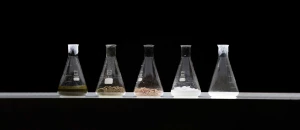Sourcing sustainable trims and haberdashery comes with its own complexities. This Masterclass will highlight some vital considerations for the design stage of your products, and shine a light on how to source trims that are kinder to the planet, and better for the people who make them too.
We've structured this Masterclass first to discuss the most commonly used trims, then the key things to consider before you begin your design process. We then follow with a matrix of ethical trim and haberdashery suppliers to buy from that we have researched ourselves. Our Technical Tutorials are full of guidance and cool case studies of businesses really stirring up the innovations in this crucial - but often forgotten about - part of fashion.
In this Masterclass you will learn:
- All about microns - what they are, why they're important to know and how to turn fibre into thread
- Sustainable raw materials for buttons, and other elements to consider when sourcing
- Why interfacing isn't eco-friendly, and the better options available
- Considerations for belts, buckles, elastic and beads
- Strategies for implementing sustainable trims and components
- How recovered ocean plastic, fruit fibre and potato chips can be used to create trims
- All about recycled and biodegradable sequins
- Considerations for sourcing sustainable zippers and sewing threads
-
Fibres: Microns & Properties
with Charlie Bradley RossRead More...Summary
In my opinion, it's vital that to be a great designer, you have a solid understanding of the construction of fabric. The technical terminology and nitty-gritty of fabric production sometimes get swept aside, but knowing how textiles are made and the different features that will affect the way they look and feel, is crucial and can be the difference between a product that works for your customer, and a product that's thrown away.
-
Buttons
with Charlie Bradley RossRead More...Summary
Tiny, yet often indispensable, and at times taking longer than the rest of the garment to biodegrade. In this video, find out how to keep your buttons good for the environment.
-
Interfacing
with Charlie Bradley RossRead More...Summary
Interfacing is a cross between fabric and glue, and it works as an adhesive when you iron it. It can also be referred to as fusible or interlining. It's used if you’re working with a fabric that needs a little extra support or needs to stand up or to hold the material in place. It’s often used in applique, quilts, and tailoring.
-
Thoughts on other trims
with Charlie Bradley RossRead More...Summary
We wanted to make sure we’d covered a range of other trims you might need - the often forgotten, aspects of a garment that needs mentioning. In this video, we cover:
- Beads and belt buckles
- Elastic
- Ribbons, Lace & Tapes
- Labels
- But don't forget to also consider items like Bindings/Supports, Shoulder Pads and Shapers, Structural Components, Tapes and Fasteners.
-
Final thoughts on trims and sustainability
with Charlie Bradley RossRead More...Summary
In this video, we leave you with some final thoughts on sustainable trims and some additional ideas on maximising your ethical and social impact.
-
Ethical Trims & Haberdashery Matrix
with Charlie Bradley RossRead More...Summary
We're delighted to present this list of eco-friendly trims and haberdashery suppliers. Please read and respect the terms of use before contacting these producers.
-
Haberdashery: Recovered Ocean Plastic
with Rob IanelliRead More...Summary
Plastic pollution is an enormous, global issue. With one garbage truck of rubbish being disposed of into rivers, oceans and lands every minute, it still astounds me how few consumers and businesses are aware of, or even care about the issue. Thanks to global campaigns like David Attenborough’s “Blue Planet II”, there has been a sudden wave in consumer awareness. As shoppers begin to question and ultimately refuse the single-use plastic they are presented with by corporates, the fight against plastic pollution becomes easier.
Thankfully, there are companies out there on a mission to solve this problem. Rob Ianelli is founder and CEO of Oceanworks. Oceanworks source, design and manufacture ocean plastic into finished goods including… haberdashery!
Rob was part of the founding team for Norton Point - the first ever sunglasses made from consumer ocean plastic, HDPE. The Kickstarter was fully funded in six days and raised just under $60,000 in thirty days.
The brand was inundated with requests from other brands looking to produce products for them too. Rob saw an opportunity to create a new company to help these brands, and Oceanworks was born.
Technical Tutorials
Choosing Sustainable Sewing Threads
Friday Mar 1st, 2019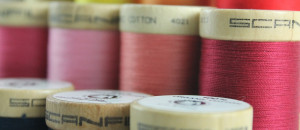
Sourcing Eco-friendly Zippers
Friday Mar 1st, 2019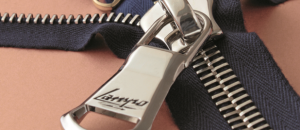
Eco-friendly Sequins
Monday Apr 1st, 2019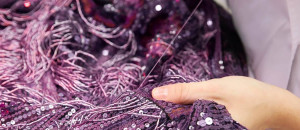
Transforming Potato Peels for Sustainable Fashion
Wednesday May 1st, 2019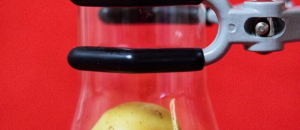
Fruit Fibre Haberdashery and Beads
Saturday Jun 1st, 2019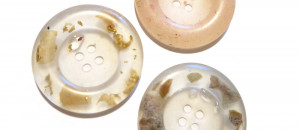
Sustainable Buttons made of Milk and Nuts
Thursday Aug 1st, 2019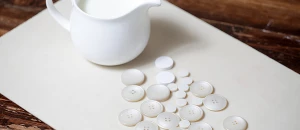
Additional Links
Wildcat® Repreve® Recycled Polyester thread from Amefird
Annecot certified organic cotton thread
The EcoVerde recycled polyester thread from Coats
Scanfil Organic Cotton threads (A selection found on Offset Warehouse and the organic textile company.)
Freudenberg interlinings.
Wendler interlinings.
Follow on Masterclasses:
Upcycling And The Circular Economy
Additional Reading
Top Takeaways from The Regenerative Fashion Conference
Sunday Oct 1st, 2023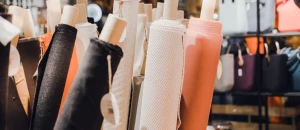
Future Fabrics Expo 2021: Biodiversity, Natural Fibres and Regenerative Textiles
Sunday Jul 11th, 2021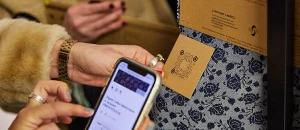
How to create positive impact with natural materials
Monday Apr 12th, 2021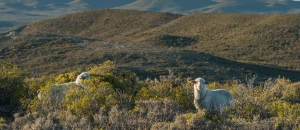
Fabrics From Food Waste, Mushroom And Weeds
Wednesday Mar 10th, 2021
Does Bioengineering Hold the Key to Our Material Future?
Monday Feb 15th, 2021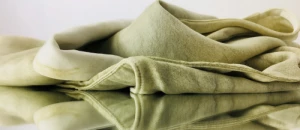
What are the benefits of using 3D Printing in Fashion?
Saturday Jun 13th, 2020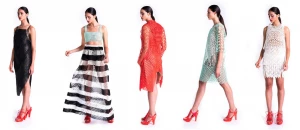
How To Extend The Life Of Your Materials
Friday Jun 12th, 2020
Material innovations in the sustainable cellulosic fibre realm
Thursday May 7th, 2020